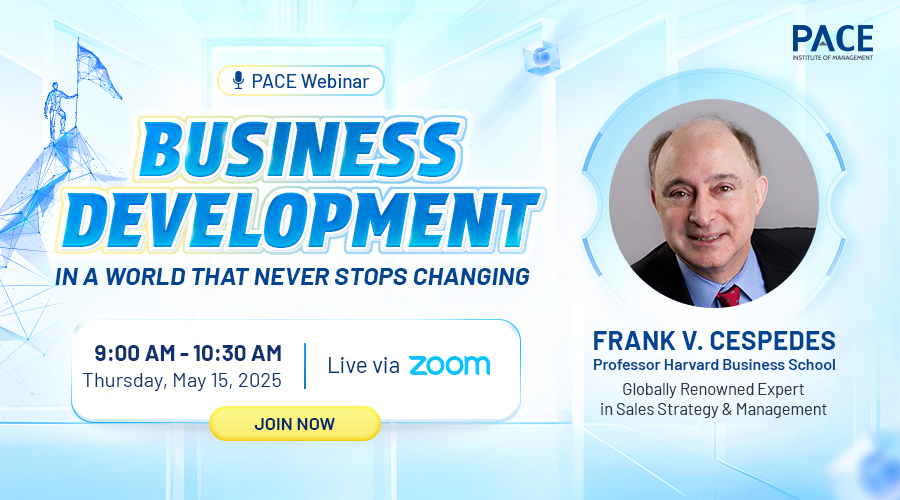If you’re a business leader looking for an opportunity to have real impact on your company — and position yourself for the top job — which career path is best? CFO? COO? CMO? What if we told you that the CHRO role might be the best job you could ever have, with real opportunity for reshaping an organization? That the CHRO role, although at first it may look career limiting, can have more impact than any other position reporting to the CEO?
That’s precisely what we found. We interviewed search professionals, CEOs, and CHROs with nontraditional backgrounds to find out what happens when business leaders outside of HR move into the role. We confirmed that CEOs are well aware of the importance of talent, rating finding the best human capital as a top challenge, but that business leaders without an HR background can be reluctant to take the CHRO role, because of their negative perception of HR, their fear that the role won’t have an impact, and their concerns about lacking necessary functional knowledge.
Lucia Luce Quinn is Chief People Officer at Forrester Research. Earlier in her career, she left a position as SVP of business development and emerging businesses to join Boston Scientific in a senior line job. Upon arriving, she flatly refused the CEO’s offer of the CHRO role. He had to ask her four more times, including once on a conference call with the whole executive team, before she finally relented.
Phil Johnston, an executive search leader at Spencer Stuart, confirms that Quinn’s initial reaction wasn’t unusual: “When a CEO asks a business leader to run HR, the most frequent response is ‘What did I do wrong?’ It’s not seen as a desirable role; it’s seen as punishment. Of course, they haven’t had a chance to think it through, but that’s the first reaction.”
Yet business leaders who took the CHRO role, including Quinn, report it is the most impactful role in their career, and many would not accept an organizational leadership position that didn’t come with the CHRO role.
And many CEOs we talked to, like Owen Mahoney of Nexon, agree that the CHRO is one of the most strategic roles someone could have: “Businesses grow or die based on the quality of their people, so the human resource executive role is arguably the most strategic in the company. If I weren’t the CEO now, I’d probably want to be the CHRO.”

According to those we interviewed, there are four reasons why “outsiders,” as opposed to those with a traditional HR background, succeed in the role:
1. Their focus on business results, not only people outcomes.
Nontraditional CHROs see outcomes like engagement or retention as paths to business outcomes, while traditional HR might view such goals as ultimate outcomes. Jacqueline Reses, a former private equity investor who became Yahoo’s CHRO, said, “We should drive HR like a product organization that finds the most critical use cases of our customers and then builds products to solve those needs. We shouldn’t execute programs that don’t serve the business. A lot of HR professionals think in terms of the functions activities, such as, ‘We need to change the organization structure’ or ‘We need to run a training program’; I think in terms of the business outcome I want to get to, then figure out how I’m going to get there.”
2. Their role in pushing fellow leaders, not just supporting or serving them.
Second, nontraditional CHROs see their role as pushing leaders, but they have often found that traditional HR thinks in term of partnering with or serving leaders. As Reses said, “I look at every leader and decide if they are right for the job. I push leaders. I drive them to higher performance.” When Quinn accepted the CHRO role at Boston Scientific, her HR organization planned to implement a program even though they knew it probably would not work. Why? Because organizational leaders wanted it. Quinn insisted that her HR team devise a program they believed would work, and she pushed organization leaders to adopt HR’s better alternative. If you would be the kind of CHRO who thinks in terms of driving success instead of supporting leaders, then you could have a huge impact across the organization.

3. Their desire to embrace opportunity, not only reduce risk.
Nontraditional CHROs embrace risks to generate opportunity where traditional HR might exclusively focus on reducing risk. These leaders don’t just tolerate risk; they hunger for it, in the form of important challenges where risk comes with potential upside opportunity. Rick Jensen, who left a big job in marketing to become SVP, Chief Talent Officer at Intuit, recalled a lesson he learned in marketing: “Fall in love with the problem.” Traditional HR leaders might feel compelled to offer conservative solutions, rather than risk trying an unconventional approach to unknotting a problem.
Zabeen Hirji, CHRO at the Royal Bank of Canada (RBC), grew up in retail banking and operations management roles before moving into HR. She says she applies a little self-test: “If I’m not presenting ideas that get turned down by the top team, I know I am playing it too safe. My job is to push the envelope.” One recent example of taking on risk she could easily have avoided was setting up a company-wide online “jam” to involve employees in defining RBC’s purpose and resetting its values. The live event could have failed in many ways; the safe thing to do would have been to back off the project. However, Hirji’s eye was on the potential upside, so she went ahead with the jam. Employees responded enthusiastically (there were over 20,000 participants), but the lesson is not that she got a big win — it’s that she was willing to risk failing.
The personality that embraces risk is best illustrated by Reses. She changed industries from private equity investing to technology; she changed geographies by moving from New York to San Francisco; and she changed functions from M&A and investing to HR. Interestingly, Reses would argue that as an investor she was the ultimate HR lead, as she helped CEOs invest in the right resources and people to build a business. If you find that this kind of challenge fills you with excitement, then a cross-functional leap into HR could be a great career move.
4. Their application of diverse business skills to the role.
Nontraditional CHROs approach HR with skills and frameworks that reflect a variety of business disciplines, while traditional HR leaders might rely too exclusively on function-specific HR disciplines. “I was surprised by how much I personally enjoyed running the HR function versus taking on a CFO role,” said Reses. “HR was a position where I had a view across the biggest challenges of everyone’s business — leadership issues and how to allocate people across teams. It was vehicle for changing the growth trajectory of the company.”
Quinn said, “I don’t love telling people I’m in HR, but I love leading HR. Many leaders experience HR as administrators who can be barriers rather than enablers. I discovered that HR doesn’t need to be like that, and as CHRO I use every skill I ever learned.”
Our interviews, not surprisingly, also suggest that transformational HR is not the sole province of nontraditional HR leaders. It can be achieved by those with traditional HR backgrounds, too, with the right view of results, relationships with fellow leaders, attitudes toward risk and opportunity, and diverse business skills.
HR, like all professions, requires specialized talent and knowledge. Nontraditional CHROs emphasized that their transformational role was only possible with the support of HR leaders with deep traditional knowledge and capability.
Often underutilized and overlooked as a lever for business impact, a shift into the CHRO role — done correctly — can be a great career move.
Source Harvard Business Review








.jpg)


